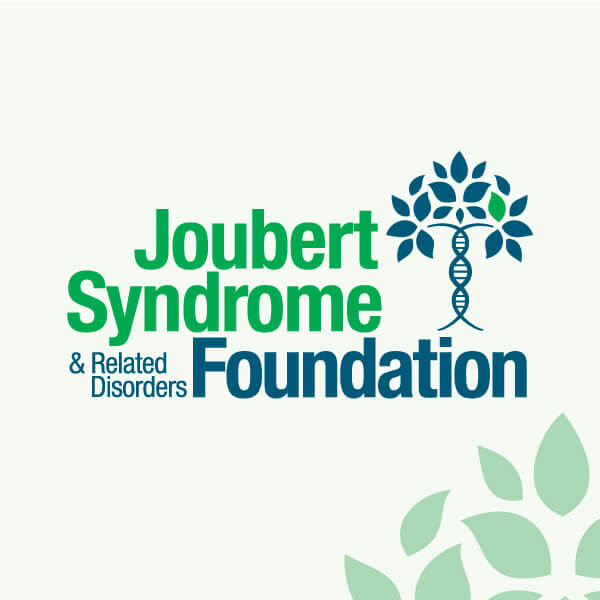Ask Dr. Dan is a blog series featuring Dr. Dan Doherty, who since 2004 has been researching Joubert Syndrome through the University of Washington Hindbrain Malformation Research Program. He has agreed to answer general questions about JS posed by people with JS, their families and their caregivers. Email your questions to info@jsrdf.org. Be sure to note that your question is for Ask Dr. Dan.
Which genes have the highest occurrence for kidney, liver or retina disease?
– Kidney: NPHP1, RPGRIP1L, CEP290, TMEM67
– Liver: TMEM67
– Retina: CEP290, AHI1, NPHP1
Why are some genes associated with higher risk of organ problems than others? The short answer is we don’t know. But we have lots of good ideas that we’re testing through research. For instance, a gene could be expressed more in some organs compared to others. For example, if a gene isn’t expressed in the retina, it is much harder for dysfunction of that gene to cause trouble in the retina. We have seen kidney liver and retinal involvement with almost all of the different causes of JS, so it is important to monitor most, if not all, patients. For specific guidance, see the 2019 journal article “Healthcare recommendations for Joubert syndrome” (available by request from joubert@uw.edu).
Is there any correlation between Joubert syndrome and autism?
Short answer: Not really.
Long answer: The definition of autism has changed over time, but it has always been an umbrella diagnostic category likely encompassing 100s or even 1000s of more specific conditions. Currently, the Diagnostic and Statistical Manual of Mental Disorders defines autism by:
● deficits in social communication and social interaction, and
● restricted, repetitive patterns of behavior, interests, or activities
Advocacy for people with autism has resulted in more support for autism treatment, so pressure has mounted for clinicians to diagnose their patients with autism, to give them access to more services. In fact, most of the treatments for autism work for children with similar issues who have other diagnoses like intellectual disability, cerebral palsy, and spina bifida. Some studies have reported an association between autism and JS, while other studies have not. This may be due to the fact that people with JS have cerebellar-based motor difficulties that interfere with eye contact and speech, and are associated with repetitive movements, giving the impression that they have autism. My experience with many people who have JS is that social skills are often a strength and communication impairments are often more due to difficulties with speech production rather than desire to communicate or ability to understand language. Some people with JS and substantial cognitive impairments have more significant deficits in social interaction and communication, so they may qualify for an autism diagnosis.
My 25-year-old son with Joubert syndrome has ileus (the inability of the intestine to contract normally and move waste out of the body). We are in the hospital or ER every six months. Is ileus associated with Joubert syndrome?
Abnormal bowel motility is thought to occur in many people with muscle hypotonia, but no specific link between ileus and JS has been demonstrated. Hirschsprung’s disease (lower bowel obstruction due to absent bowel nerves) has been reported in a small number of people with JS, but this may just be a chance occurrence. In the UW cohort of >750 people with JS, hospitalization due to ileus or other bowel motility issues is very uncommon.
When families are thinking about trying out a new treatment or therapy, how should they approach those decisions? Examples include vision therapy, hyperbaric oxygen therapy or the use of a natural prokinetic agent (like tripahala) to treat constipation.
I recommend to families that they weigh the possible risks and benefits of unproven treatments. If there’s some chance of benefit, the risks are low, and the family can afford the time and money, then it’s fine to go ahead and try unproven treatments. If an unproven treatment does not seem to make a difference after a reasonable trial period, families should feel free to stop. Families should also be aware of financial conflicts of interest if the person recommending the treatment will benefit directly if the family engages in the treatment.
In the U.S., FDA-regulated drugs are likely to be better defined and less prone to harmful contaminants than non-regulated treatments. That said, non-regulated medications like melatonin are commonly recommended by medical providers. I don’t have specific knowledge of triphala, so it’s difficult for me to comment on this fruit mixture, but in brief searches of toxicology databases, I did not find reports of significant toxicity. Some adverse events have been reported with hyperbaric oxygen therapy, and this should be approached with caution and with advice from medical providers not involved in the treatment. Vision therapy is not dangerous, but to my knowledge, there have been no high-quality randomized-controlled trials demonstrating benefits of any vision therapies. That said, such trials are extremely difficult and expensive to perform, so the absence of evidence that vision therapies work does not mean that they are definitely ineffective. Therefore, the decision likely rests on whether a patient and their family have the time, money and energy to engage in vision therapies.
